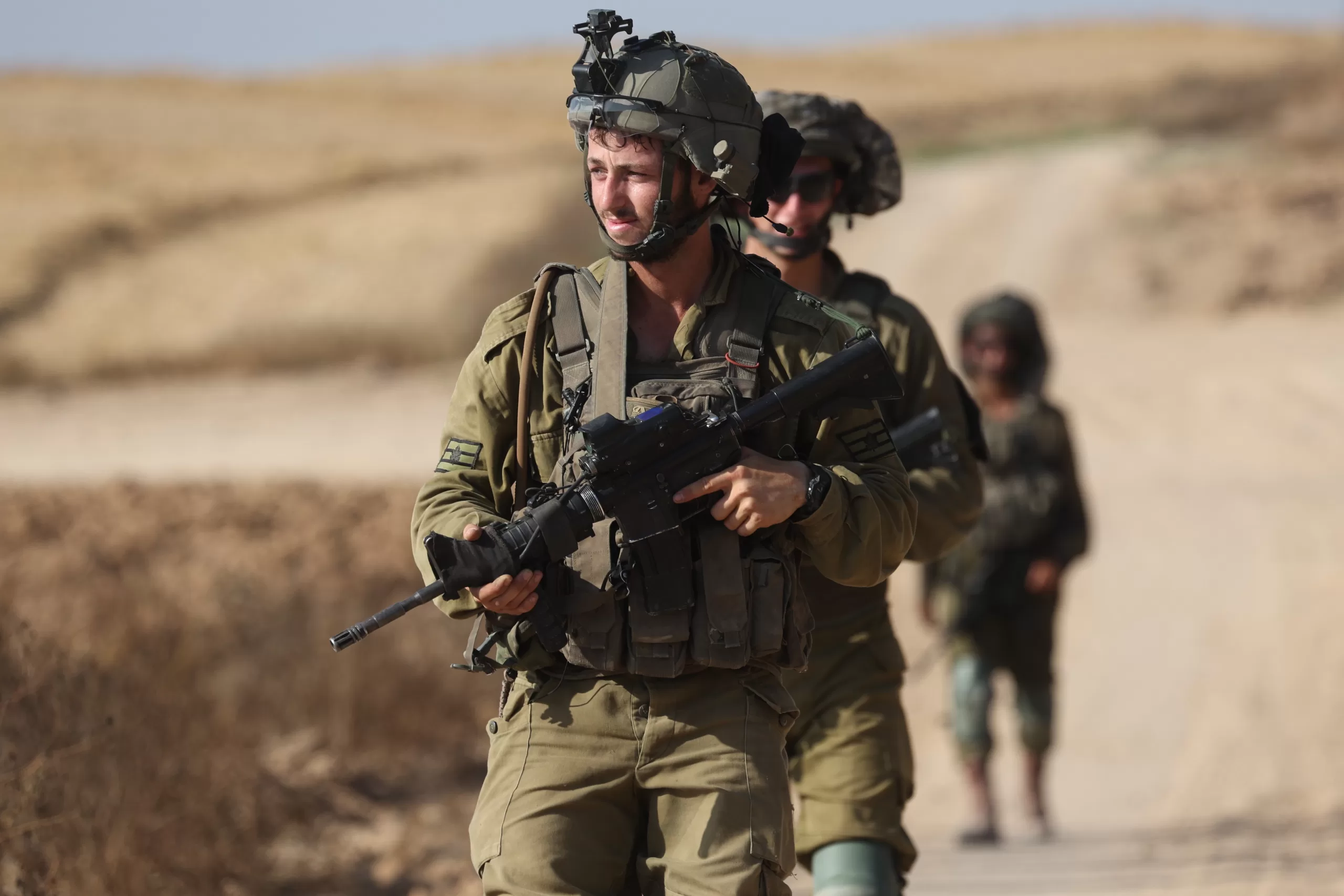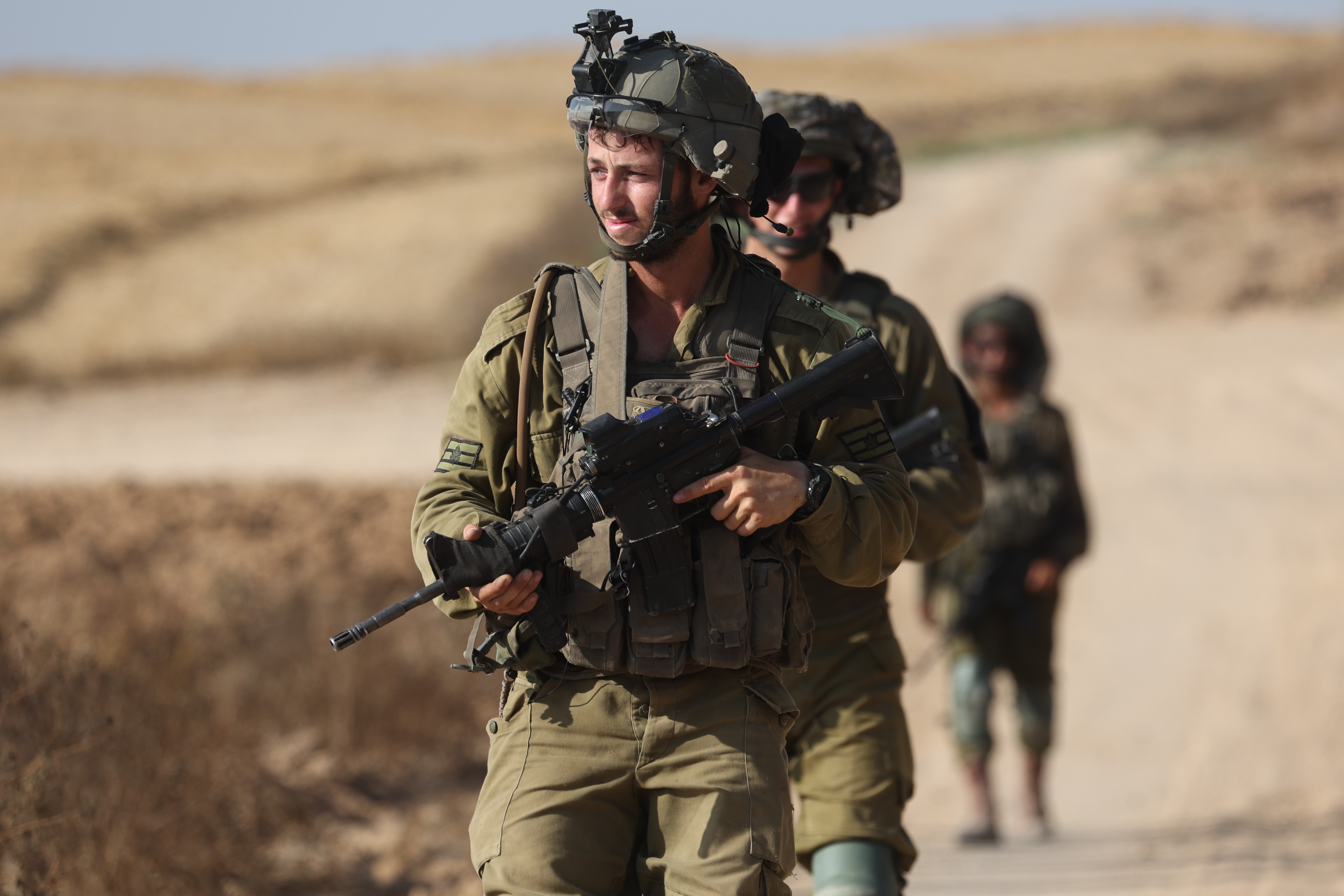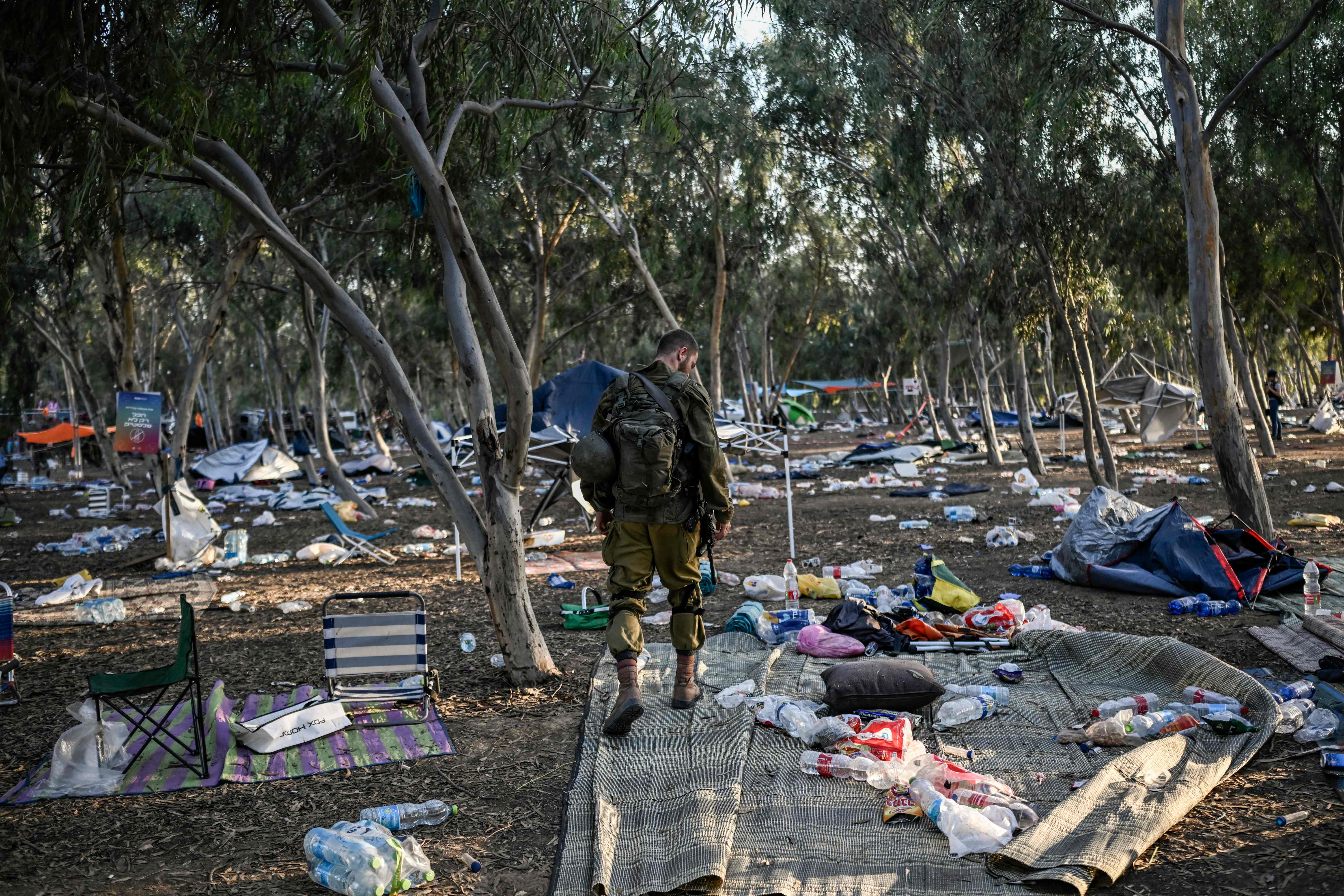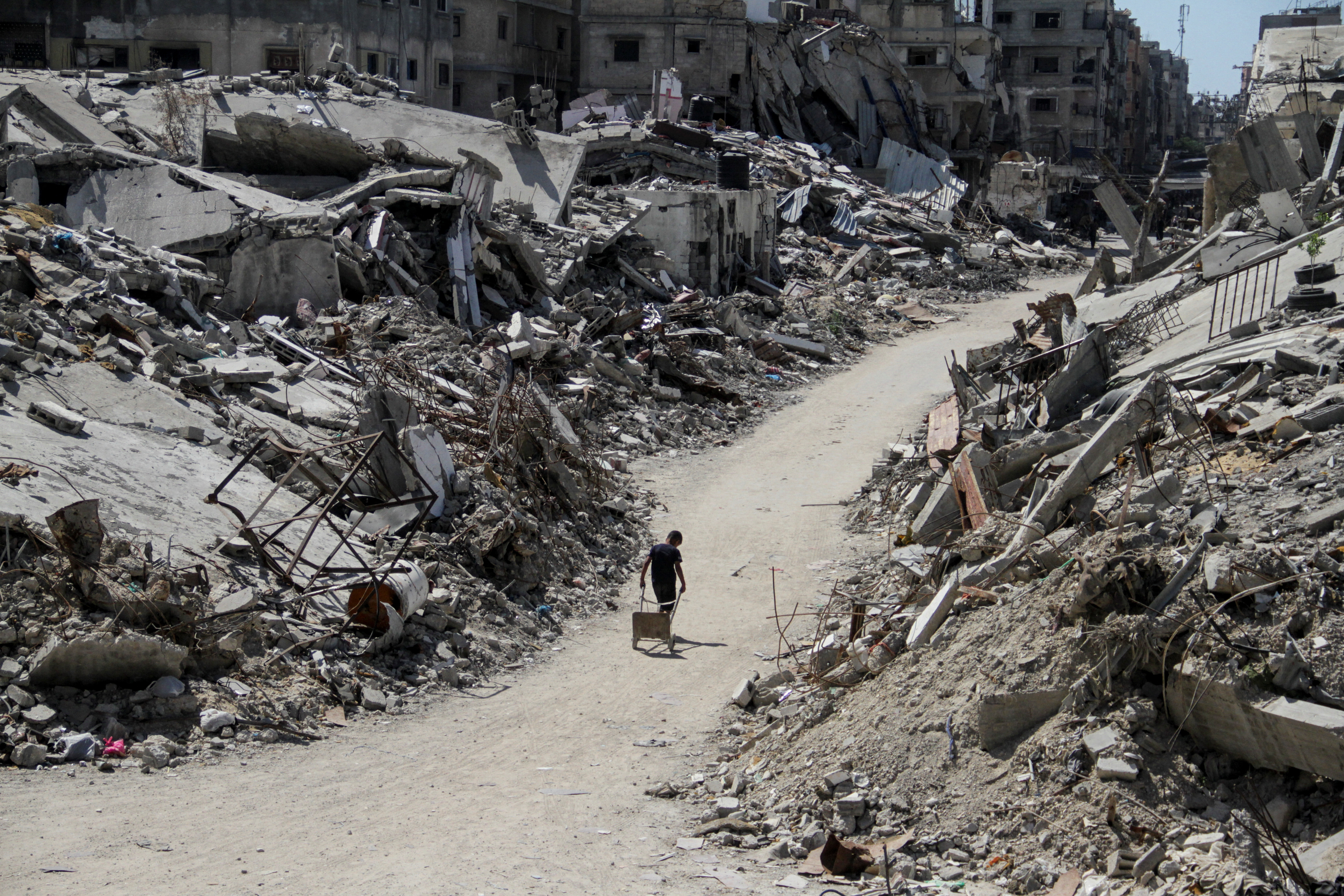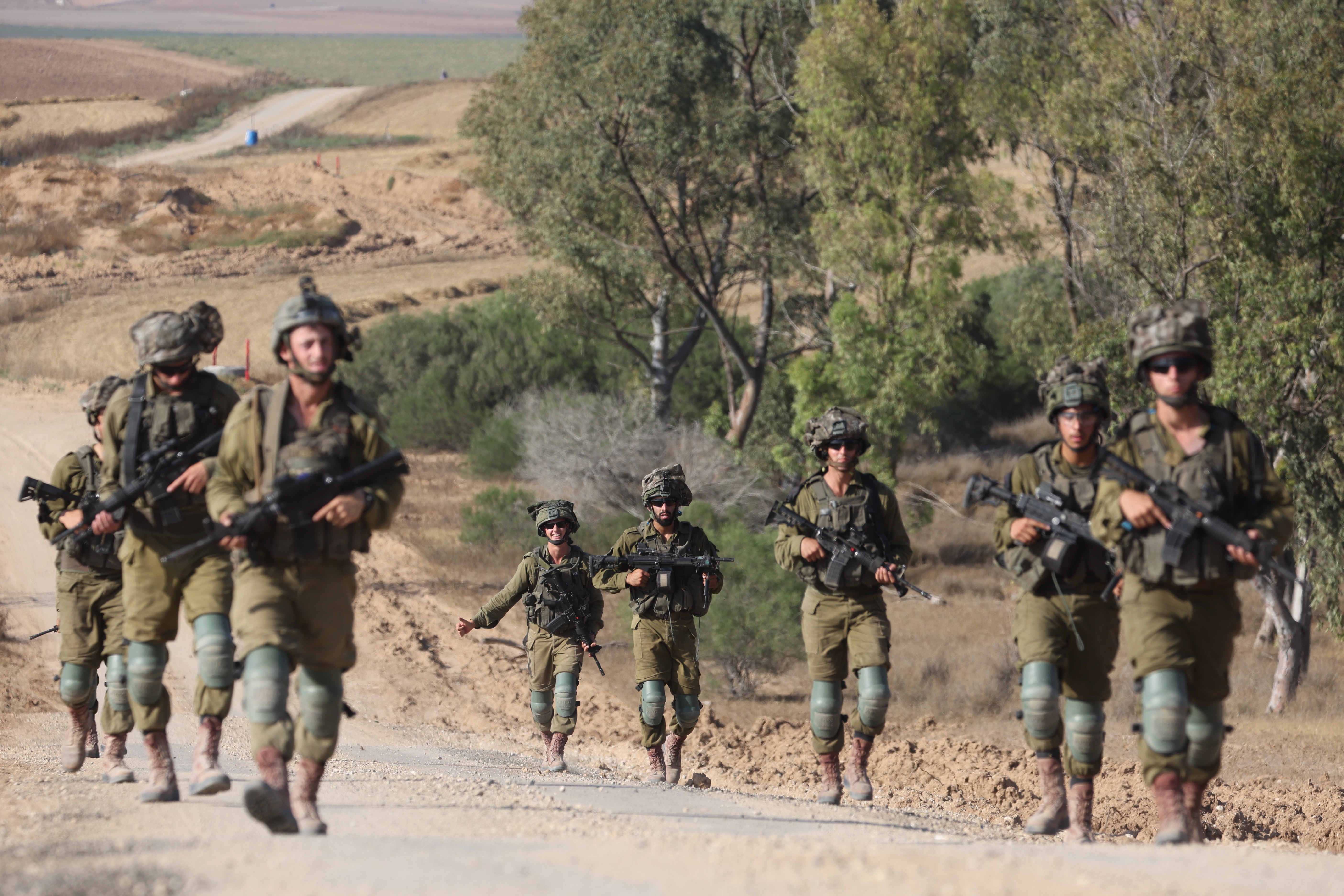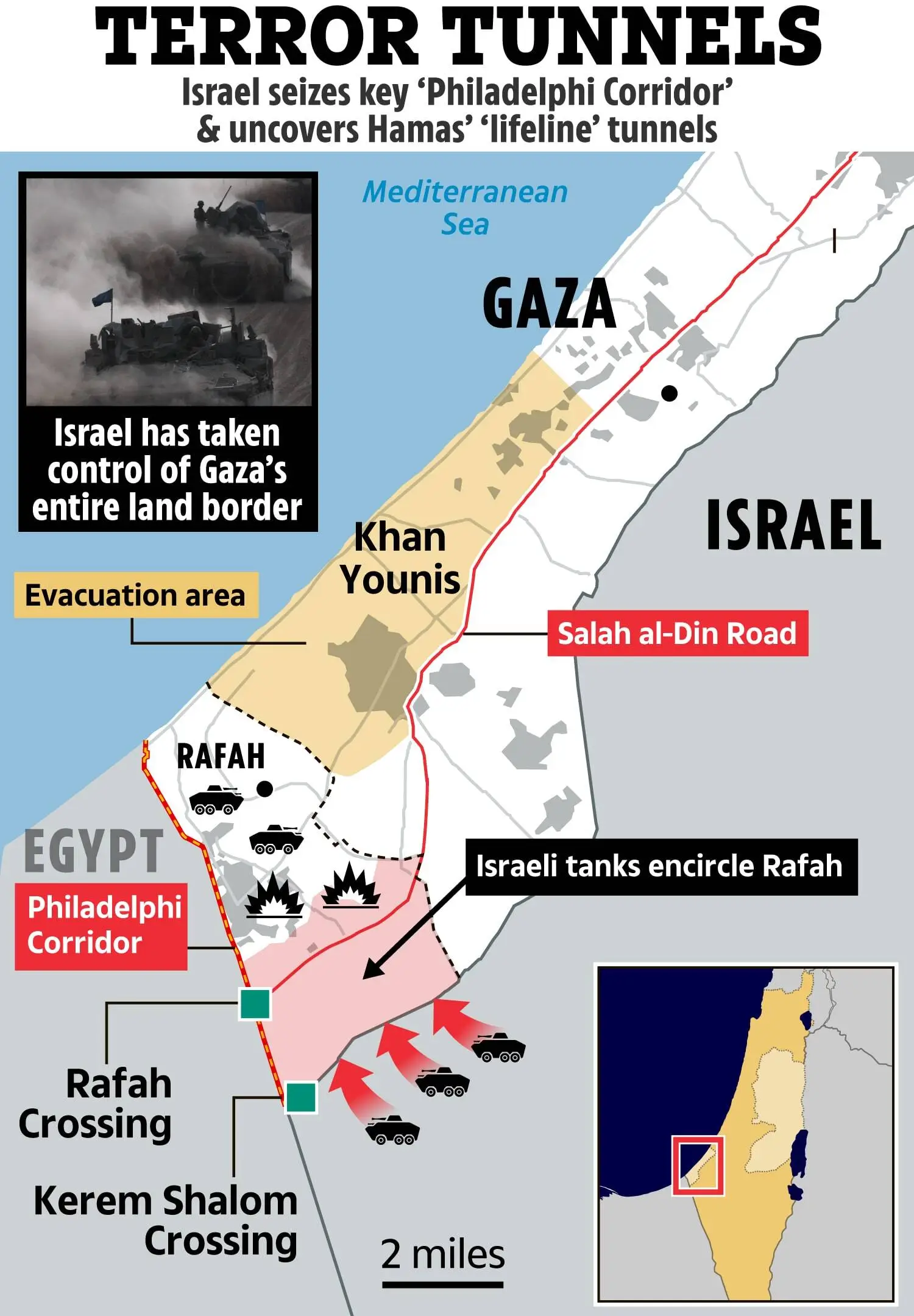The UN claims Israeli armed forces activated the “Hannibal Directive” which backs killing its own soldiers to prevent them becoming hostages.
It allegedly recorded “strong indications” that multiple times on October 7, the Hannibal Directive was applied, “harming Israelis at the same time as striking Palestinian militants.”
The first in-depth investigation by UN experts into the war in Gaza also claims that Israeli and Palestinian armed groups had both committed war crimes, crimes against humanity and other international law violations.
Released Wednesday, the UN‘s Independent Commission of Inquiry allegedly noted “a widespread or systematic attack directed against the civilian population in Gaza”.
A 68-year-old grandmother and twins who were 12 years old were among the 14 Israeli civilians who, according to UN investigators, “were likely killed as a result of Israeli security forces fire.”
Read more on Israel Hamas war
The Israeli government angrily rejected the overall report, slamming the commission as “biased and tainted by a distinct anti-Israeli agenda”.
It went on to note that it ignored Hamas’s sadistic use of civilians as human shields.
The report “describes an alternate reality in which decades of terrorist attacks have been erased”, it said.
“There are no continuous missile attacks on Israeli citizens and there isn’t a democratic state defending itself against a terrorist assault.”
In its statement released late Wednesday the ministry added: “To add insult to injury, the report is full of false accusations and blood libels against IDF soldiers.”
Israel’s government also slammed the commission for “outrageously and repugnantly” equating sexual violence with Hamas and the Israeli military.
The report investigates both Hamas’ conduct on October 7 and Israel’s military reaction in Gaza, providing legal analysis that could be used in future criminal cases.
The UN commission was denied access to Israel, Gaza, and the West Bank, and Israel failed to respond to six requests for information, The Teleghraph reports.
It drew its results from remote interviews with survivors and witnesses, satellite photography, forensic medical records, and open source information.
Several examples of Israeli civilians being purposely targeted by their own armed forces on the day that thousands of armed Hamas terrorists stormed the Nova music festival and Kibbutz settlements near the Gaza border are buried in the details.
It comes after Israeli forces rescued three hostages trapped in Gaza before battling their Hamas captors.
Heart-racing footage shows the moment Israeli troops stormed into a living room and into a darkened bedroom where they found three men sheltering together.
The daring mission carried out on Saturday saw Israeli Defence Forces (IDF) rescue Almog Meir Jan, 21, Andrey Kozlov, 27, and Shlomi Ziv, 40.
Noa Argamani, the 26-year-old woman whose story made headlines in October after she was snatched by Hamas, was also saved on Saturday from a nearby site.
A hail of gunfire can be heard in the video as IDF troops smash open the apartment door, along with what appears to be children shouting and screaming in the background.
Shlomi, lying on a bed, holds his hands above his head in the footage as troops storm into the dark bedroom.
All four of the hostages were taken by Hamas on October 7 last year, when the terror group launched a brutal attack on the Nova music festival in Israel.
The Hamas-run health ministry in Gaza claims 274 Palestinians were killed, including children, during the raid.
What is the Hannibal Directive?
THE Hannibal Directive is a controversial military policy of the Israel Defense Forces (IDF) designed to respond to the potential capture of Israeli soldiers by enemy forces.
First introduced in 1986, the directive’s primary aim is to prevent the abduction of soldiers, even if it means risking their lives.
The policy includes the authorisation of extensive and aggressive measures, which might involve heavy firepower, to stop the capture at any cost.
The Hannibal Directive gained significant attention and controversy due to its perceived willingness to use potentially lethal force to avoid a situation where a soldier is taken hostage.
Critics argue that it places soldiers’ lives at excessive risk and may lead to civilian casualties in conflict zones.
Supporters claim it is necessary to prevent the strategic and psychological advantage that adversaries gain from capturing Israeli soldiers, which could lead to prisoner exchanges or other concessions.
